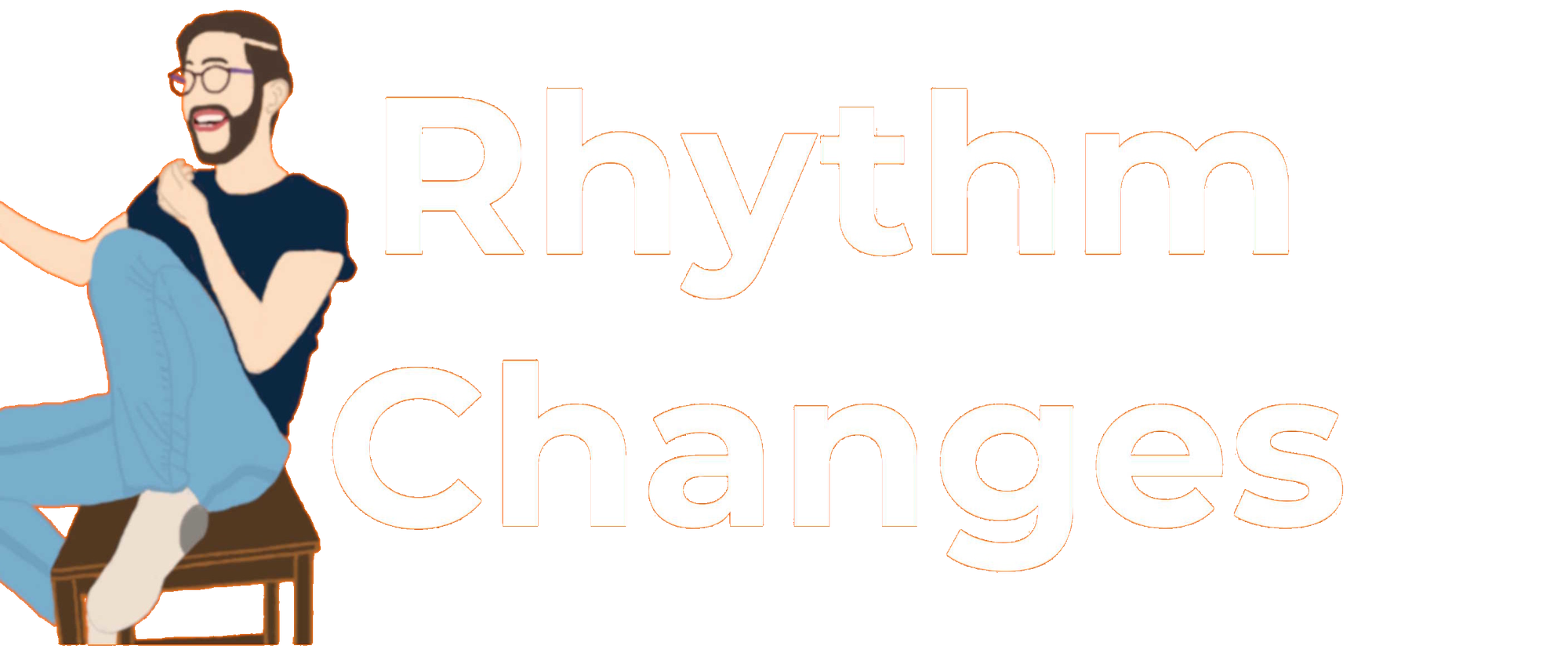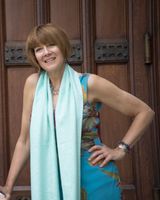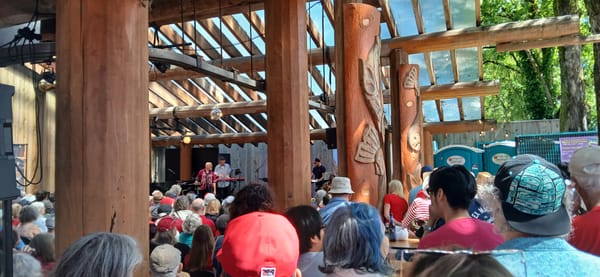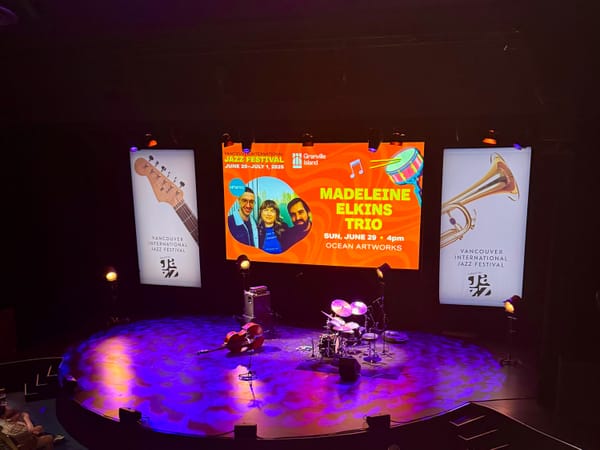Ingrid Stitt: professional playing & lifelong development
The saxophonist makes her mark in an unassuming way, also being a songwriter-arranger-vocalist
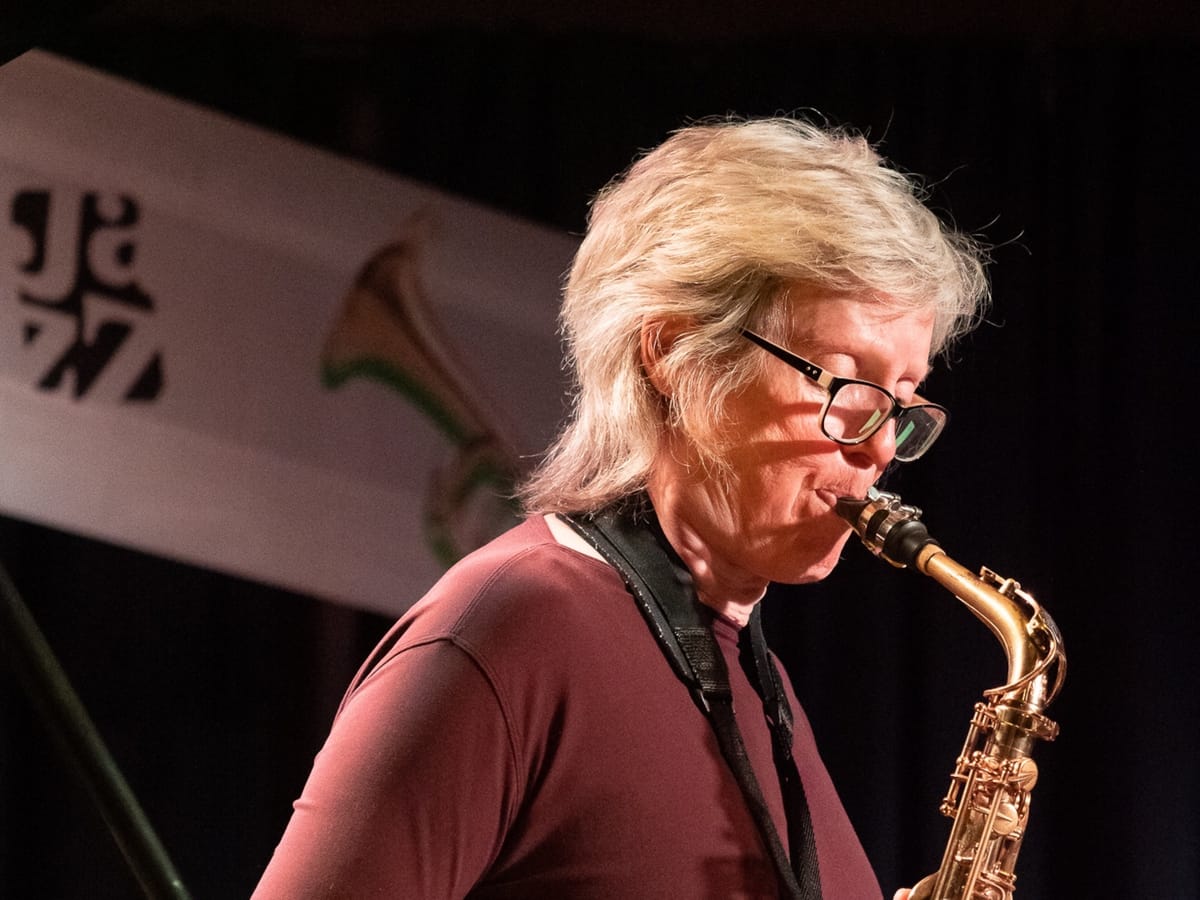
Each time I have heard saxophonist Ingrid Stitt perform, I have considered what an under-the-radar musician she appears to be. I always want to hear more of Ingrid! She possesses a rich and warm tone as she digs into the music and seems to tap into that invisible place within a song that I like to call the soul connection.
There’s an influence of bebop and blues in her playing, and there’s always a groove or the sense that she’s pouring herself into each piece with a deep intensity that elevates the listening experience. Whether she’s playing as part the Good Noise Gospel Choir band – of which she has been a key member for many years – or as part of a big band or leading her own ensembles, Ingrid makes her mark in an unassuming way.
In addition to being a fabulous saxophonist, Ingrid is also a wonderful songwriter, arranger and vocalist. When you hear her captivating voice on her recordings Olé and When Days Were Long, you may become a deeper fan of this surprising artist.
Recently, Ingrid and I rendezvoused for coffee and conversation about music and life, and I was reminded of what a thoughtful and articulate person she is, in addition to being a great musician. How lucky we are to have her working and playing in our city! Currently, Ingrid is playing in the band for a production of Guys and Dolls at the Stanley Theatre. For the upcoming Vancouver International Jazz Festival, she will performing with the Sister Jazz Quintet on June 23rd at Ocean Artworks. Catch her while you can!
KARIN PLATO: Did you choose the saxophone as your instrument, or did someone choose that for you?
INGRID STITT: Saxophone was suggested by the band director, although my mom would have probably agreed to anything, except drums. She loved Jimmy Dorsey and saxophone in general, so it was a popular choice.
KP: What was your age when you first began to learn how to play the saxophone?
IS: I was 10 when I started, but I had been playing piano for five years already, so reading music was somewhat advanced, and I certainly found reading a single line of music quite easy.
KP: Are there other instruments that you play?
IS: No, but I managed to dabble on drums when I became a high school music teacher.
KP: For you, what were the most challenging things about the instrument when you were a new player?
IS: I think the biggest challenge was the extreme ends of the range. I had a lot of trouble getting the low notes to speak, and the high palm keys were a bit frustrating to coordinate. When I first heard David Sanborn wailing in the altissimo register, I couldn’t figure out what he was doing, and it was a huge source of frustration. I didn’t know about overtones, and I had a very classical mouthpiece, but eventually I became aware of how to access those notes, and I felt pretty cool [laughs].
KP: Who would you say would be your main influences in music?
IS: I was very influenced by David Sanborn in high school. I had listened to Charlie Parker and Cannonball Adderley, but I didn’t really like the recordings, probably because I couldn’t relate to the sound. The playing was very confusing to me, so it took awhile to understand. I think Adderley has had the most appeal for me, because he has a rhythm and blues element to his playing that sparks joy for me. Eventually, I came to appreciate the simplicity and beauty of Paul Desmond’s playing, especially his From the Hot Afternoon recording. Currently, I listen to Chris Potter, Kenny Garrett, Eric Alexander, and Vincent Herring.
KP: Do you have a particular daily practice regime, or how often are you able to make time to practice?
IS: When I was a student at McGill, I practiced every day for several hours. It was an intense period of growth and learning. I was excited to be in such a rich environment, so I was highly motivated to make the most of that time.
For the roughly 20 years that I was a professional player, I had a practice routine that involved basic skill maintenance [alongside] time to learn new aspects of music as I came upon them. I always wanted to actually practice something I couldn’t do, or hadn’t been able to execute very, well and these challenges came up over the course of several years. I would hear a recording, or take a lesson from someone, and then spend time figuring out what I needed to practice to be on top of that concept. I remember taking some lessons from Kirk MacDonald in Toronto, and he introduced me to bebop scales, which I had never heard of before. I spent several months targeting that concept until I could unravel different ways to apply it in my playing.
KP: You are known as an instrumentalist primarily, and some people may not be aware that you are also a wonderful vocalist and have included singing in your albums. Who are some of your favourite vocalists in any genre, and what is it about them that you appreciate?
IS: I felt a little bit shy to record myself singing, as I don’t consider myself to be that accomplished, and I have tremendous respect for singers. My grandfather was a trained opera singer, and we grew up listening to him sing and to the recordings of singers he admired like Jussi Bjorling, Maria Callas, and of course Pavarotti. We sang a lot in our family, and I always enjoyed it.
I was in the choir at school and was happy in the alto section singing harmony parts. In my career as a professional saxophone player, I worked with different genres of music to make my living. For example, I worked in a wedding band in Montreal while I was studying at McGill. I got paid well and could take home leftovers, but I was asked to sing backup vocals, which was a lot of fun. There's considerable downtime in a set otherwise. Then I joined a funk band called Tchukon and sang quite a bit with them. I eventually gained enough confidence to think my singing was at least passable, but I didn’t shift my focus from the saxophone.
When I became a high school teacher, I was given the opportunity to teach choir, which I really enjoyed. I decided to take voice lessons from Melanie Adams so I could be more effective teaching choir. I found my voice was reasonably decent, especially with training, so I sang quite a bit with the choir students and felt comfortable demonstrating vocal techniques to them. I started to sing a few tunes on gigs with my own band and people seemed to like it. However, I was motivated to sing because I like it and wanted to feel the pleasure of singing.
I would say, though, that I know my limitations. I’ve always loved singers like Aretha Franklin, Stevie Wonder, Sarah Vaughan, Ella Fitzgerald, Blossom Dearie, Joni Mitchell, Nancy Wilson, Carmen McRae, and a host of others across all styles of music, including opera and classical music. For example, I love Andreas Scholl and Renee Fleming. I’m drawn to the uniqueness of the singers I admire. I can immediately recognize the character and sound of their voices. I like the music they perform, but I really appreciate the interpretation of the music: how the performances reflect their skill but also their love for the music. I can relate to the emotion I perceive, whether it’s intentional or not. At the end of the day, I love singing that sounds authentic and heartfelt.
KP: Other than jazz-based music, are there other genres of music that you enjoy listening to and playing?
IS: I actually enjoy all genres of music in some form or other. My daughter has introduced me to music of her generation, some of which I find quite accessible. We dance to it, mostly [laughs]. My dad liked country music, and my mom loves classical and jazz. Of course, I grew up with rock and pop, funk and disco.
I realize that music is a form of expression, and I’m interested in all of the ways that people create this form of expression through music. I wish I could hear all the music of the world, but I’ve at least made an effort to do so.
KP: You are a working musician actively playing gigs and recording, and you also teach lessons at the VSO School of Music. And for many years, you taught music in the school system. What are the aspects of teaching that you enjoy?
IS: Teaching has made me a better human being, and I’m grateful for the opportunity to experience that personal growth. When I first started, I was a bit unsympathetic to students who forgot their instruments or their music, or hadn’t practiced at all. But as I came to know the ways students were impacted by their circumstances, I realized that I needed to be kinder, more empathetic, patient, and a better listener.
There are many reasons why a child would choose music in high school, and it's not always because they loved playing an instrument or singing. Once I started to pay more attention to who was in my class, I became a better mentor to each individual student in whatever way I could, and that was a big challenge. It is more work to address the needs of individuals but also more rewarding. I have enjoyed connecting with young people and learning about who they are. I have also appreciated how important music can be in their lives, and in some cases how music has continued for them post-secondary.
I suppose my main goal was to give all the students a path to autonomy, so they could continue developing their interest in music, but I also wanted to create positive experiences and memories. As a mentor, it’s a great feeling to see a student grow in their understanding and confidence.
KP: Regarding these qualities in playing music could you place these in order of importance for you starting with the most important: timefeel, intonation, technique, tone, dynamics, other?
IS: The most important [are] timefeel and tone, then intonation but hopefully not to an extreme. Some sax players sound sharp, and we all know Neil Young has been criticized for singing flat, but sometimes it works. I would probably rank dynamics over technique, but of course all these skill sets are extremely important, and everyone works hard to achieve them all at once.
Transcribing has always been an interest of mine, but it was quite challenging in the days of records. I didn’t want to scratch the vinyl, so it was a tedious process to find out what David Sanborn was playing, especially the altissimo notes. Then cassettes made thing a bit easier. Now I use the Amazing Slow Downer [app], which is extremely effective, especially for certain phrases that I want to extract from a recording. It has definitely sharpened my ear training, because I was listening very carefully and repeatedly to music I wanted to emulate.
Of course, musicians are are thinking and even visualizing the shape of the notes, which could be called intervals. I also used the piano to figure things out, and that was a great help, because I could see the notes more clearly.
KP: What is something that a teacher or mentor said to you that remained with you throughout your life?
IS: I always seemed to hear, "Practice this," or, "Practice that," from every teacher I ever had. And yes, practicing is so important. But one statement that has resonated with me is something Sting said in an interview: “Music is its own reward”.
It’s very difficult to make a living as a musician, and I certainly struggled at times, mostly with worry about whether I would have enough gigs to keep going. I always managed to cobble together a living, and I accepted that I would never have much money. The thing that I never really cared about was fame or fortune. I was grateful to be a musician and to make my way in life through music, at least when I was young.
There came a point when I wanted more security and stability, which is when I switched to full time teaching. I lost a lot of skill as a performer, because I couldn’t find the time to practice. I gradually withdrew from practicing and performing to focus on being an effective teacher, which I don’t regret. I also wanted to spend time with my family, and there are choices to be made around these kinds of shifts.
The bonus is that I have been resurrecting my love of playing and practicing now that I have retired from full-time teaching. So the arc of my life as a musician [went from] love for playing, and singing in my family and community, to studying and pushing myself to deeper development as an adult. Teaching was a way of giving back and sharing what I had learned, and now I am enjoying all these aspects of my musical journey.
I made a living, but I was rewarded by the privilege of having music in my life. I am very grateful to my parents for supporting me and to all the people I have met along the way. It’s been an amazing and incredibly enriching path.
